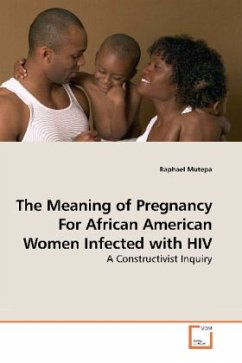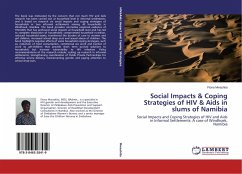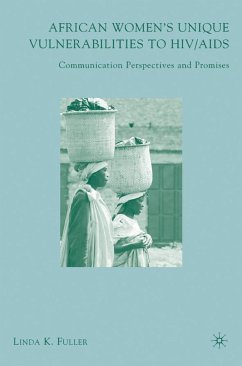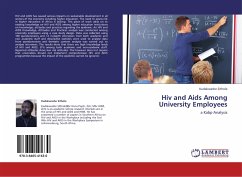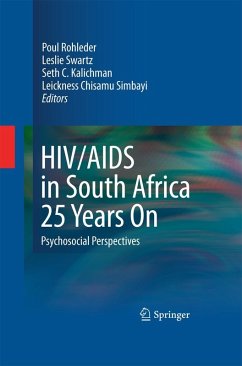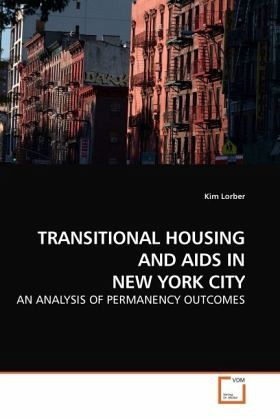
TRANSITIONAL HOUSING AND AIDS IN NEW YORK CITY
AN ANALYSIS OF PERMANENCY OUTCOMES
Versandkostenfrei!
Versandfertig in 6-10 Tagen
45,99 €
inkl. MwSt.

PAYBACK Punkte
23 °P sammeln!
Individual factors contributing to the discharge of transitional housing residents in New York City for people with AIDS to permanent housing were studied. Many challenges impede accomplishing this goal including limited housing options, the impact on physical and mental health due to chronic illness, and lack of social supports. Nearly 60 percent of residents had negative discharge outcomes. Race, ethnicity, age, substance abuse histories, social supports, and education were explored. This inquiry addresses an emerging social problem - the long term needs of people living with AIDS. New medic...
Individual factors contributing to the discharge of transitional housing residents in New York City for people with AIDS to permanent housing were studied. Many challenges impede accomplishing this goal including limited housing options, the impact on physical and mental health due to chronic illness, and lack of social supports. Nearly 60 percent of residents had negative discharge outcomes. Race, ethnicity, age, substance abuse histories, social supports, and education were explored. This inquiry addresses an emerging social problem - the long term needs of people living with AIDS. New medical treatments have increased survival rates. Longevity has, in turn, created individual needs heretofore not addressed by existing human services. New programs of service have had to be created, stressing existing financial and service delivery resources. This study explored experiences and needs of a group previously overlooked. Housing options, including transitional and hospice settings, met the needs of people with AIDS early in the epidemic. Policy modifications are necessary to meet the quality of life and long-term survival prognoses of PLWHA during the 3rd decade of this epidemic.




